- Home
- Rachel Caine
An Affinity for Blue Page 2
An Affinity for Blue Read online
Page 2
On stage, the accordion player dragged notes out of the squeeze box that human ears could barely hear, music that vibrated deep inside of John’s head. He looked up –
And met those hot blue eyes.
In the first instant it felt like a cold, sharp shock like stepping on ice with bare feet, and he was taken with the notion – as he had been with Vivyan – that he knew this man, knew him like he knew his own face. But he didn’t. He’d have remembered a player like this.
The music swirled to a halt, leaving the room breathless and dizzy. John blinked and realized his eyes felt dry; he’d been staring into blue eyes for a long time. Too long, for a man who didn’t go that way, and as the music that had held him up drained away and dumped him back in the real world, he started to worry about that, because the accordion player dropped lithely off the stage and pushed through the crowd, coming toward him.
Funny thing, John had always thought, the same crowd that worshipped the music barely paid any heed to the musicians who left the stage. It was like they turned invisible. The accordion player slid past knots of people and headed straight to where John stood, empty glass in his hand.
Close up, the man gave off heat like a wave, and he was slick with sweat. John had been mistaken about the eyes – they were blue, but the pupils were round and normal, and now the man looked like any other musician coming down off a sound-driven high.
"You a player?" the man asked. He had a deep voice, and it seemed to John that there were chords in it, music most folks could never even imagine. The man glanced down at the horn case John still held tight. Was he a player? It was a question John had never asked himself before, never had reason to. He’d always been a player.
But in this room – suddenly, he doubted it.
"Certified," he heard himself say. "My name’s John the Evangelist."
A smile grew slowly on the other man’s face until it showed white straight teeth.
"Always nice to meet a saint," he said. "I am Carrefour. You come to play?"
John lifted the horn case a little by way of answer. Carrefour’s smile broadened.
"Then come on."
John followed him back to the stage. Carrefour jumped up, straight up, from a flat-footed start – not a thing John was betting he could do, horn case or no. He went around to the stairs.
Somebody moved like a shadow to block him halfway up the steps. He blinked and held up a hand to filter out the house lights, saw the piano player standing in his way. The man was old, but solid as a pile of bricks, and something shining in his eyes like a thin amber film of oil. John had been around enough stages to know an under-the-influence when he saw one.
"Scuse me," he said, and turned sideways to angle by. The piano man moved to block him.
"Got no business up here," the man rumbled. "Eh, Carrefour? We don’t need no hounsi bossale."
Carrefour’s blue eyes looked over the piano man’s shoulder. "Let him up, Huntor."
"He got to pay the toll."
John took a step back. Huntor’s toll was nothing he wanted to pay, no matter how thirsty he might have been. Carrefour must have known it, because he moved forward and pushed Huntor out of the way, as easy as if he’d been pushing aside a curtain. Huntor’s eyes looked to flash hot amber, but that must have been the lights.
Carrefour held out his hand. "Come up, John."
"Not without toll," Huntor rumbled. Carrefour’s lips twitched in a smile.
"Oui, the toll. Just to humor my friends, Evangelist. Give me something of yours to hold on to so we know you play us straight."
John’s thoughts felt slow in his head, made liquid by rum and smoke and music. He could feel the pressure building around him, knew they needed to play, knew he needed to play. Can’t hand over my wallet. The horn was out of the question. And all he had was –
His hand brushed the gold necklace Vivyan had hung around his neck. He saw a spark in Carrefour’s eyes.
It’s worth it. It’s worth it for the music.
He pulled the necklace off and poured it into Carrefour’s dark, waiting palm. The wink of crystal signaled him like a hand slipping under the waves, and then it was gone, transferred to one of Carrefour’s pockets.
John felt oddly empty. He met Carrefour’s molten blue eyes, and saw something – something flash. For a second they weren’t human eyes, they were slitted, cool, endlessly amused.
And then it was gone. It’s the lights. Lights, and rum, and too much smoke, not all of it off of cigarettes. The bar reeked of sweat and booze and drugs, the way a church reeked of incense. Got to get my head back on.
"Time to play, no?" Carrefour said, and turned away. Huntor grunted satisfaction and slouched back to his piano. John laid down the horn case and snapped the catches back. The trumpet gleamed in its ruby velvet bed, beautiful and hot to the touch as a willing woman. John slid the mouthpiece in place, blew warm air through the horn, and moved the case back to the shadows out of the way.
Carrefour smiled at him, a wide white grin of anticipation. He’d put on the accordion harness again.
"Save our souls, Evangelist," he said, and nodded to Huntor, who started into a hammering frenzy of notes. "Play!"
The sax player nodded to him, brushed sweat-beaded hair back from his face, and started to wail. Carrefour’s accordion swirled and cried like the north wind.
The music took John down.
Inside the music, there was no time, no place. The music was a living thing, the tempo a vast red heartbeat, the notes the skin that held them all inside. Phrases began, faded, evolved, were born into minor keys; there was no confusion, no hesitation. There was no possibility of playing with anything less than total commitment. John’s body made music and left his mind free to see, to see the white-hot lines that connected him to Carrefour and Huntor, spiderweb-thin, humming with power. I’m part of this. He’d had moments, sometimes, when he’d been able to touch the music, live in the silence between its notes, but never like this. He hadn’t known it could be like this.
The music shaded dark.
Carrefour’s eyes met his, cat-slitted, inhuman and somehow more than human, doorways into eternity, crossroads into the dark. Huntor was something shadowy and wrong behind the keyboard, and the sax player – the sax player was just a boy, playing his heart out, playing out every ounce of strength and gift in him. The webs connecting him to Carrefour and Huntor were glowing white-hot, and John knew without knowing why that the boy had never played like this in his life.
And never would again.
The thought scared him, shocked him out of the seductive pleasure of the music. The room – the room swayed, the dancers threw themselves into the music, but there was something else in the room, designs chalked on the floor, intricate lines of gray and white. Designs that glowed the same pure and unhealthy white as the lines that tethered him into men on stage.
Stop. It sounded like Vivyan’s voice, sharp with anxiety. Stop, John!
John lowered his trumpet, watched the white cord connecting him to the band flare and smoke and turn ash-gray. He felt like an empty sack, all his strength gone, and grabbed the edge of the piano to keep from falling.
The sax player’s tethering cords were turning red. The boy’s eyes were brimming over with tears that spilled over bloody on his cheeks.
"Stop playing!" John shouted, but the music shouted him down, screamed and cried triumph.
The sax player was crying tears of blood and he couldn’t stop playing.
"The music chose you." The whisper came close to John’s ear, and he winced at the feel of hot breath on his neck. Carrefour was next to him, strong where he was weak; his eyes didn’t look anything like human now. "And you chose it."
John felt it pressing on him like a hand, the music, Carrefour’s will, Huntor’s wild black stare. He felt his arms tensing to raise the trumpet back to his lips.
He did the only thing he could. He jumped off the stage and ran, ran out into the street with the music cha
sing him like a blood-hungry tiger, ran until he couldn’t hear it in his ears.
But it was still in him like a scream.
He found another bar and drank until he drowned it.
He woke up with gray light streaming through the windows, a flat acid taste in his mouth, and a feeling of being emptied, as if he were a bag all the music had been poured out of. Dream, he thought, and turned over to look at the old travel alarm clock he’d brought with him.
He must have forgotten to wind it. He fumbled for his wristwatch and squinted at it in the half-light.
Five ‘til eight. He’d only rested for two hours, then. No wonder he felt so bad. As he sat up the room did a queasy, greasy whirl and he stayed very still until it decided to stay in place for him; that done, he stood up and realized two things. He had a hangover the likes of which he couldn’t remember, and he needed to piss so bad it was like to bust him wide open. Headache or not, he stepped into his pants and stumbled down the hall to the cold-tiled communal bath, where he released the pressure on his bladder with a glad sigh.
As he washed his hands at the sink, he glanced up into the mirror. An old man looked back, shrunken, drained of life and vitality and purpose. A shuffling gray-haired empty-eyed wreck drinking cheap wine from a screw-topped bottle and mumbling about the old days when he was a player. I’m halfway there. The thought terrified him so much he felt his knees get weak, and he sat down on the toilet, stomach turning and fighting.
It started coming back to him. The bar – the music – the wild blue eyes staring into his soul. The music being torn out of him by the roots.
He broke out into a cold sweat that he wiped away with one of Vivyan’s clean white towels, went to the window and opened it to catch a steamy, music-spiced breath of New Orleans air. The stench rolled over him – spilled beer, old vomit, low tide, rotten fish, the spices from a thousand French Quarter cookstoves – and he gagged on it.
This time, he gagged.
He voided his stomach into the toilet and wandered back toward his room, wishing that Vivyan was awake so he could talk to her. The hallway was the same cool soothing blue it had been before, the window at the end like an opaque aquarium.
Her door was open. He stopped and looked in, and saw her sitting in the same rocking chair, a baby in her arms –
And then he blinked, and it wasn’t Vivyan at all. It was an old, old woman, her hair white and wild around her head, and she was holding what looked like a bouquet of feathers.
"John the Evangelist," the old woman said. She had a high, thin voice, and she mumbled some because she had no teeth. "Come on inside."
He did, because he’d been raised to respect his elders and if nothing else, she was that. Her eyes were dark, dark as windows into night, and too sharp for that aged face. The feathers she held were bound into a kind of duster, but like no feather duster he’d ever seen – colorful feathers, parrot maybe, or macaw.
"You look for Vivyan?" she asked, and grinned without teeth. "Gone. Gone off for a time. I’m her Tante Marinette-Bois Chèche. Nobody never tell you to wear a shirt, boy?"
In his sickness, he forgotten he wasn’t dressed but for the pants. He looked down at himself in surprise.
"Nev’ mind, I don’t. Always good to see a strong man’s body. You a strong man, Evangelist? You strong enough, you t’ink?"
Yesterday, he would have said yes. Today –
"I don’t know," he said.
"You know why you got no shirt?" she asked, and cackled a laugh. "’Cause you got taken! Monter le tête! You got ridden like a rented mule!"
Carrefour. He remembered that with a jolt, the four men on the stage, smoke swirling thick as milk around them, Carrefour’s slitted fire-blue eyes, the accordion pumping out a wild rhythm, John’s trumpet screaming out notes that ripped open the sky. Ridden like a rented mule. The sax player crying bloody tears.
"I ain’t talking ‘bout wakin’ up in the state you in," Tante Marinette said, and rocked back and forth in the chair with a creak of old wood. "You know that now."
"What happened to me?" The words sounded weak and thick, tasted foul in his mouth. Tante Marinette leaned forward like a stooping vulture.
"Petro," she said. "You know anything about the Vodun, boy?"
"Voodoo?"
She snorted. "No such t’ing as voodoo, ‘cept in those movies. Vodun. What you know?"
"I – nothing." She’s crazy, he thought. But her eyes looked more than crazy.
"This place, this New Orleans is full of the wild magic. Easy to call down loas here – spirits, you say. Spirits ride the head -- monter le tête. Vivyan warn you, music ain’t no plaything here. Music calls the spirits. The caplatas, they draw the veves and gather their société to dance the ceremoni. You, you drink your rum, you draw the spirit, the music open the way. And you dance, too. You dance like a puppet to the Petro’s tune."
Tante Marinette was staring at his bare chest. He looked down, half-afraid to see some fresh tattoo, but there was nothing but the skin he’d always owned. Her old eyes – dark as the shadows on the moon – looked up into his without warning and froze him in place.
Starlight.
"You give up the charm," she said. "You give up the charm, and you got lost, boy. You don’t know how lost. Carrefour, he have your gift now. You want it back, you got to go to him. You got to send away the loa and take back what you lost."
He felt gooseflesh shiver up his spine.
"I didn’t lose anything," he said. "I’m tired, that’s all. Too much to drink."
Tante Marinette said nothing.
"I don’t believe in voodoo. Or Vodun."
She shrugged and crossed her arms, the feather duster held there just under her chin. He remembered pictures he’d seen of mummies, withered skin intact, in the same kind of pose.
"I’m going to practice," he said.
"Heh," she said. "So you should."
It distressed him to realize that he’d lost his horn case, left it in his panic to get out of Carrefour’s club. His trumpet lay fragile and gleaming on the bed, and he carried it carefully, like a baby. The mouthpiece he slipped in his pocket.
He went back to Bourbon Street to play. He felt drunk and stupid with sleep, and a hard-shelled knot of a headache ate at his brain like a tropical parasite. It was a busy evening in the Quarter; he followed music to another door, and another, and another. Too many musicians, not enough space for all the players. He caught no sight of Carrefour, or Huntor, or the sax player.
Toward midnight, he sat in with a Dixieland traditional band of venerable old men, their beards dusty tangles of gray, their skins dry and squeezed empty of life. He put in the mouthpiece and blew warm air through his trumpet, waking it slowly into life.
The clarinet player – as old as Pete Fountain, for certain – turned cataract-gray eyes toward him. "You ready?"
"I’m ready." He didn’t feel ready. He felt odd, off balance, separated from his instrument in a way he’d never been. But he put his trumpet to his mouth, and waited.
The band swung into the Basin Street Rag. John struggled with it, a piece he’d played all his born life, jazz so primitive and bred-in-bone that he should have been able to play it dead or sound asleep.
He couldn’t. His lips couldn’t hit the notes, his fingers couldn’t close the valves. After a painful refrain, he stopped playing and looked at his trumpet, stunned, began emptying spit valves and adjusting slides, as if it was a tuning problem. The clarinet player kept watching him with those blind, knowing eyes. Nobody said a word to him, even after the song was done. In the silent language of jazz, it was understood he wasn’t welcome.
He pulled the mouthpiece out of his horn and walked out.
He bought a drink at another bar, politely asked to sit in and played freeform jazz. That didn’t help, because the notes – always so quick and fluid and easy to find – moved away from him. Music washed around him like a rock in a stream, and he couldn’t quench his thirst in anything but
rum and whisky.
He bought more drinks.
Then he bought a bottle.
Toward dawn, he sat down in a doorway. Somebody dropped a dollar in his lap, and he was too tired, too sick, too numbed to curse them for it.
"Vivyan," he mumbled. "Help."
People walked by, stepping over his outstretched legs, paying him no more attention than they did the trash in the gutter. Closed, empty faces – white, black, it didn’t matter. He was alone. He’d never been so alone.
A shadow stopped and loomed over him. Big. Menacing. He hugged his trumpet closer, ready to fight for it even though it didn’t love him anymore, even though he and music weren’t even on speaking terms.

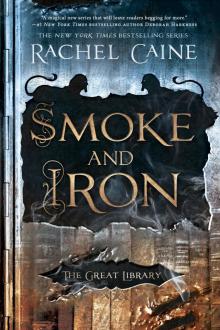 Smoke and Iron
Smoke and Iron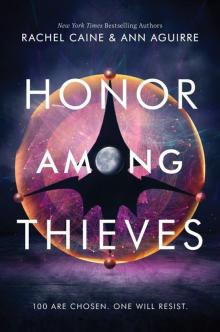 Honor Among Thieves
Honor Among Thieves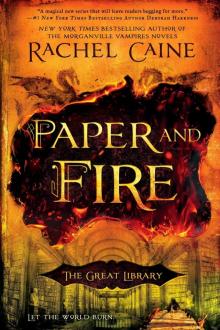 Paper and Fire
Paper and Fire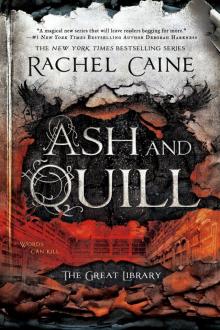 Ash and Quill
Ash and Quill Wolfhunter River (Stillhouse Lake Book 3)
Wolfhunter River (Stillhouse Lake Book 3)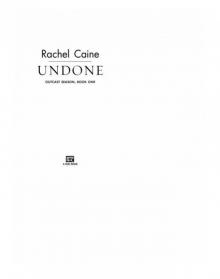 Undone
Undone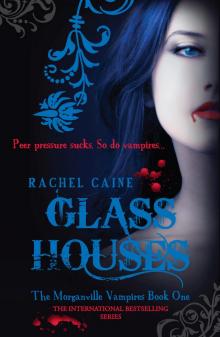 Glass Houses
Glass Houses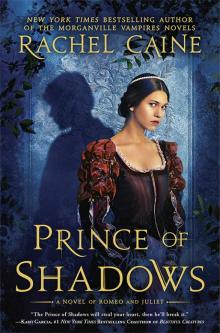 Prince of Shadows
Prince of Shadows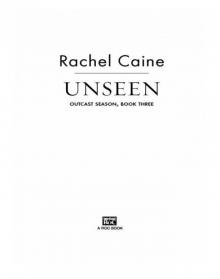 Unseen
Unseen Midnight at Mart's
Midnight at Mart's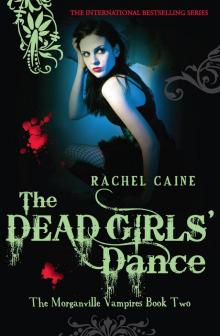 The Dead Girls Dance
The Dead Girls Dance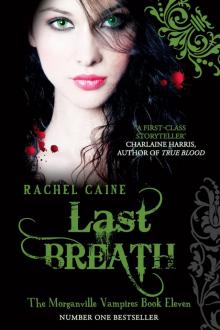 Last Breath
Last Breath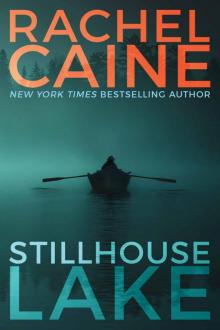 Stillhouse Lake
Stillhouse Lake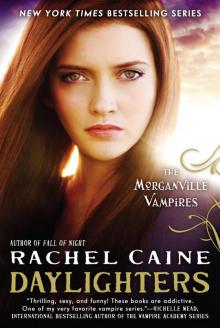 Daylighters
Daylighters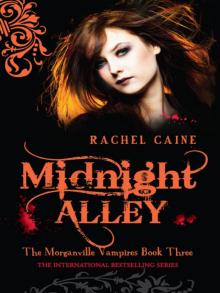 Midnight Alley
Midnight Alley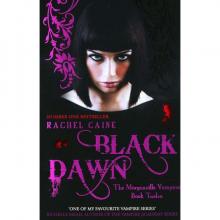 Black Dawn
Black Dawn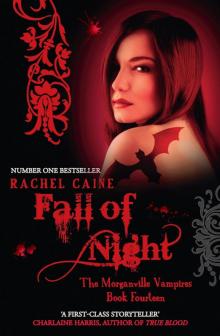 Fall of Night
Fall of Night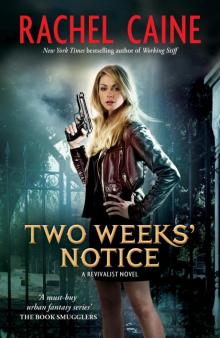 Two Weeks Notice
Two Weeks Notice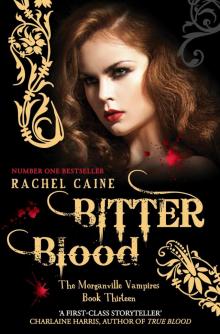 Bitter Blood
Bitter Blood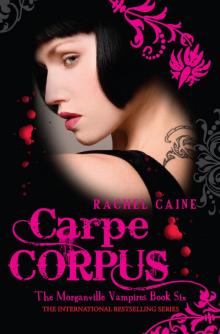 Carpe Corpus
Carpe Corpus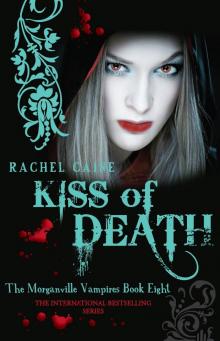 Kiss of Death
Kiss of Death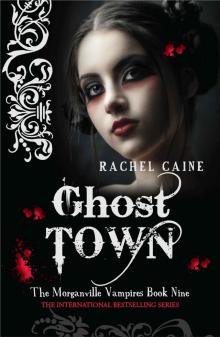 Ghost Town
Ghost Town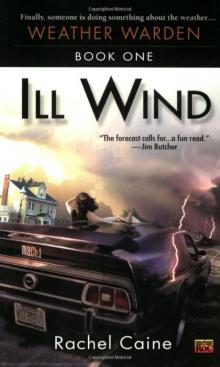 Ill Wind
Ill Wind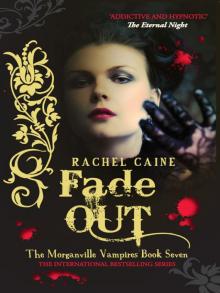 Fade Out
Fade Out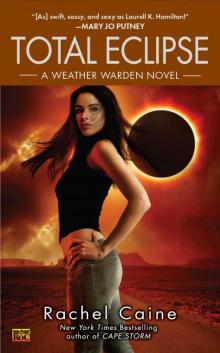 Total Eclipse
Total Eclipse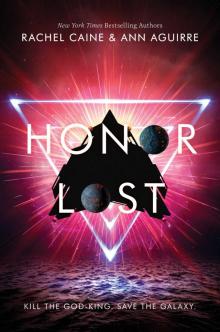 Honor Lost
Honor Lost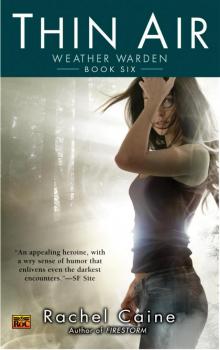 Thin Air
Thin Air Black Corner
Black Corner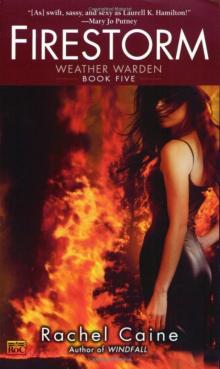 Firestorm
Firestorm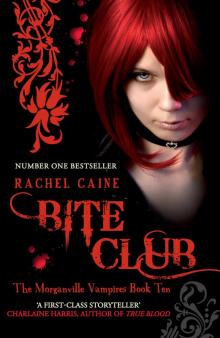 Bite Club
Bite Club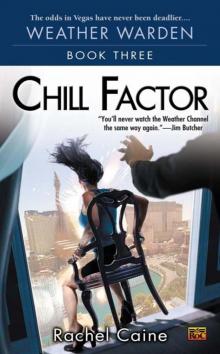 Chill Factor
Chill Factor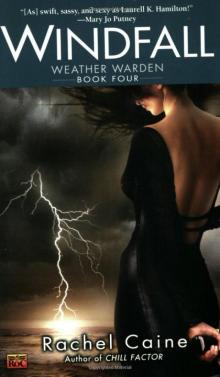 Windfall
Windfall Oasis
Oasis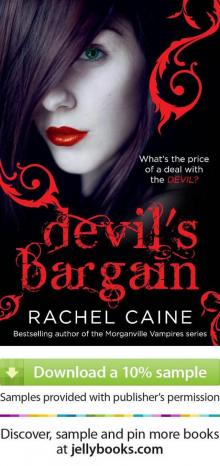 Devils Bargain
Devils Bargain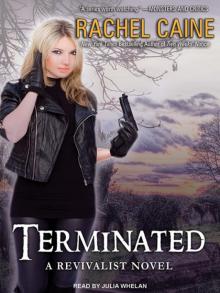 Terminated
Terminated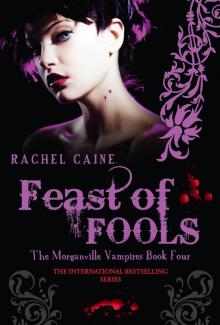 Feast of Fools
Feast of Fools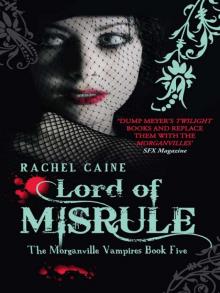 Lord of Misrule
Lord of Misrule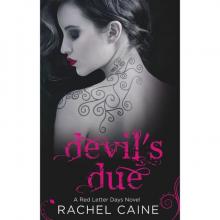 Devils Due
Devils Due Ladies' Night
Ladies' Night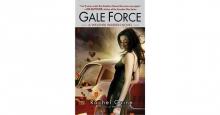 Gale Force
Gale Force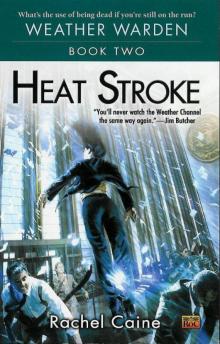 Heat Stroke
Heat Stroke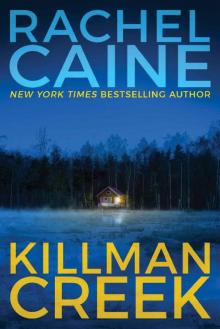 Killman Creek
Killman Creek Sword and Pen
Sword and Pen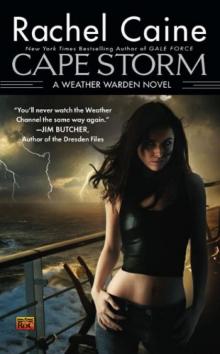 Cape Storm
Cape Storm Unbroken
Unbroken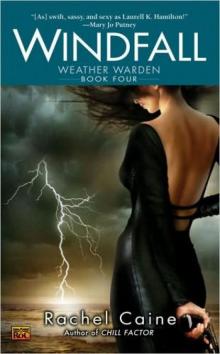 Windfall tww-4
Windfall tww-4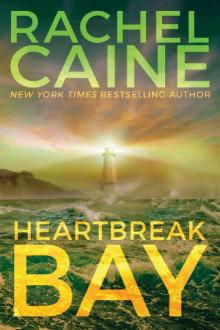 Heartbreak Bay (Stillhouse Lake)
Heartbreak Bay (Stillhouse Lake)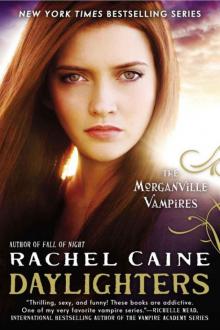 Daylighters: The Morganville Vampires
Daylighters: The Morganville Vampires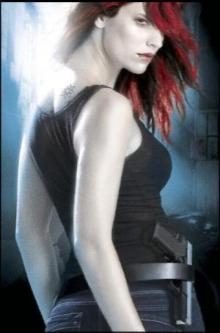 Duty
Duty Honor Bound
Honor Bound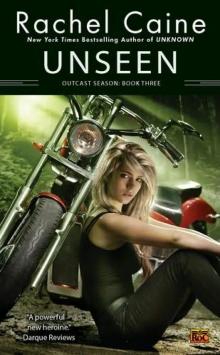 Unseen os-3
Unseen os-3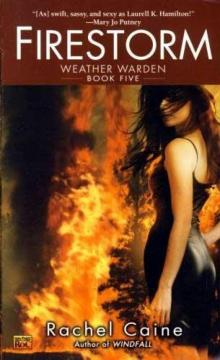 Firestorm tww-5
Firestorm tww-5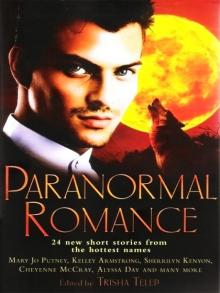 Blue Crush
Blue Crush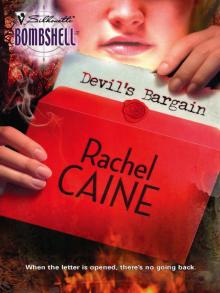 Devil s Bargain
Devil s Bargain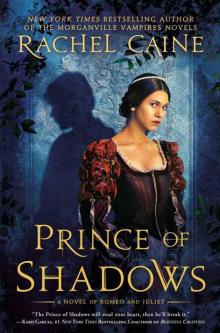 Prince of Shadows: A Novel of Romeo and Juliet
Prince of Shadows: A Novel of Romeo and Juliet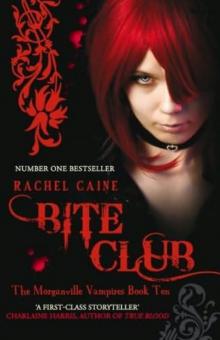 Bite Club mv-10
Bite Club mv-10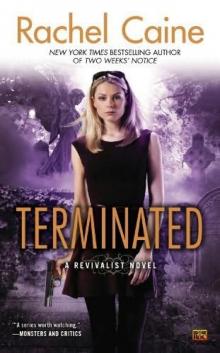 Terminated tr-3
Terminated tr-3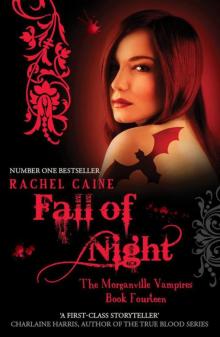 The Morganville Vampires 14 - Fall of Night
The Morganville Vampires 14 - Fall of Night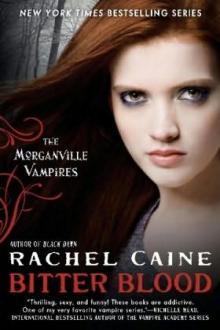 Bitter Blood tmv-13
Bitter Blood tmv-13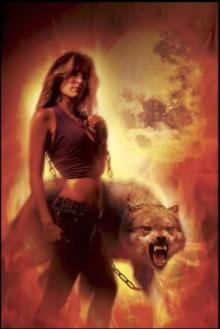 Falling for Grace
Falling for Grace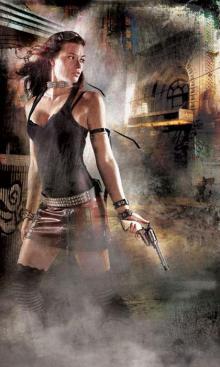 The True Blood of Martyrs
The True Blood of Martyrs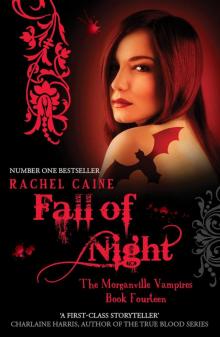 Fall of Night (The Morganville Vampires)
Fall of Night (The Morganville Vampires)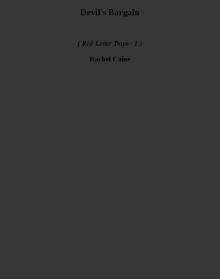 Devil's Bargain rld-1
Devil's Bargain rld-1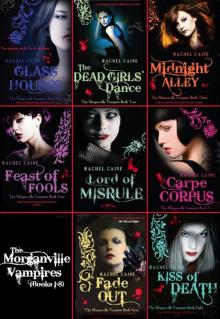 The Morganville Vampires (Books 1-8)
The Morganville Vampires (Books 1-8)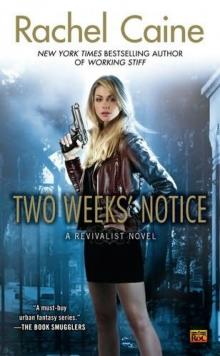 Two Weeks' Notice tr-2
Two Weeks' Notice tr-2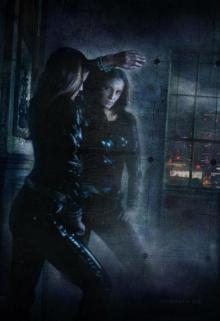 An Affinity for Blue
An Affinity for Blue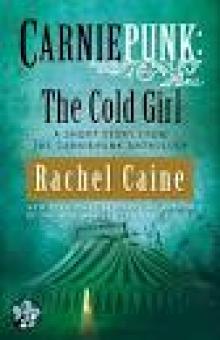 Caine, Rachel-Short Stories
Caine, Rachel-Short Stories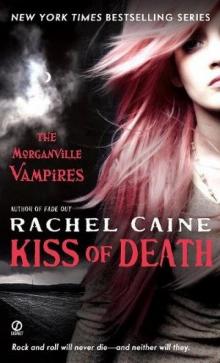 Kiss of Death tmv-8
Kiss of Death tmv-8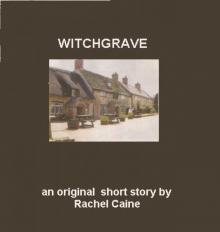 WITCHGRAVE
WITCHGRAVE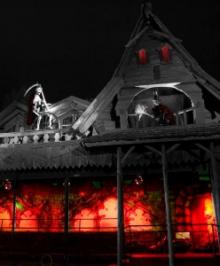 Dark Rides
Dark Rides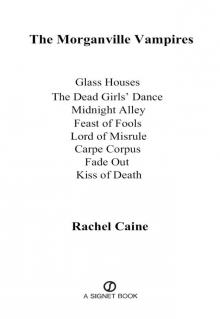 The Morganville Vampires
The Morganville Vampires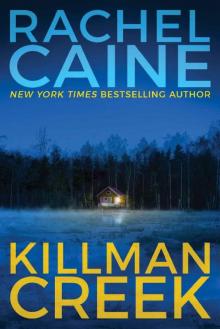 Killman Creek (Stillhouse Lake Series Book 2)
Killman Creek (Stillhouse Lake Series Book 2)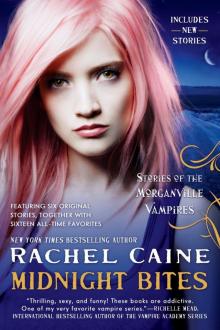 Midnight Bites
Midnight Bites Line of Sight
Line of Sight![Morganville Vampires [01] Glass Houses Read online](http://i1.bookreadfree.com/i1/03/30/morganville_vampires_01_glass_houses_preview.jpg) Morganville Vampires [01] Glass Houses
Morganville Vampires [01] Glass Houses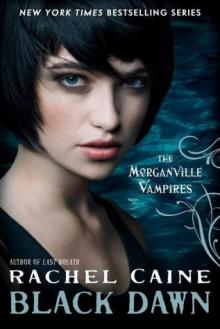 Black Dawn tmv-12
Black Dawn tmv-12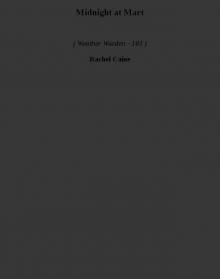 Midnight at Mart ww-103
Midnight at Mart ww-103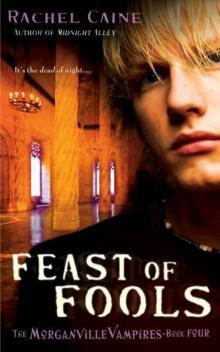 Feast of Fools tmv-4
Feast of Fools tmv-4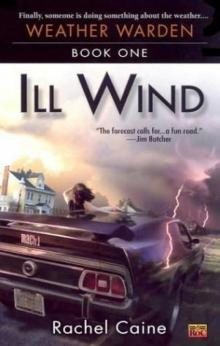 Ill Wind tww-1
Ill Wind tww-1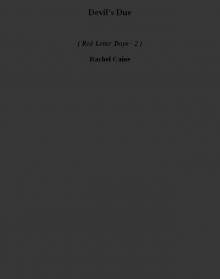 Devil's Due rld-2
Devil's Due rld-2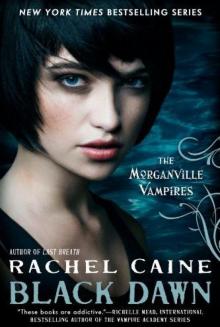 Black Dawn: The Morganville Vampires
Black Dawn: The Morganville Vampires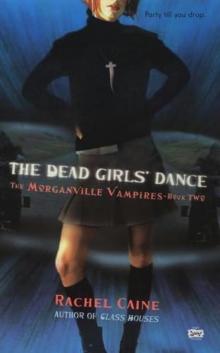 Dead Girls' Dance tmv-2
Dead Girls' Dance tmv-2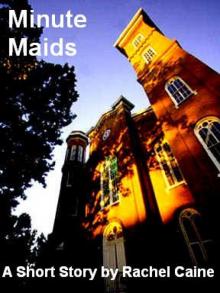 Minute Maids
Minute Maids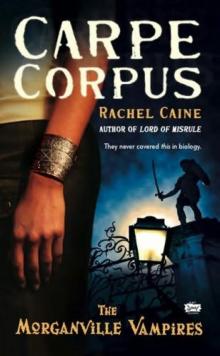 Carpe Corpus tmv-6
Carpe Corpus tmv-6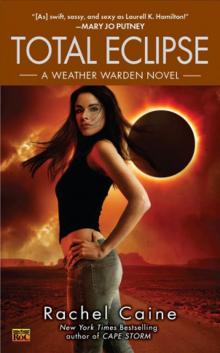 Total Eclipse tww-9
Total Eclipse tww-9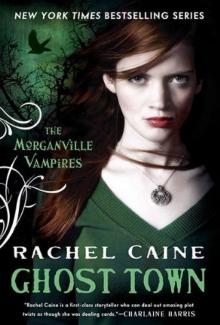 Ghost Town mv-9
Ghost Town mv-9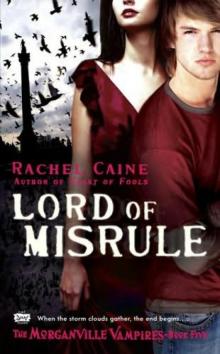 Lord of Misrule tmv-5
Lord of Misrule tmv-5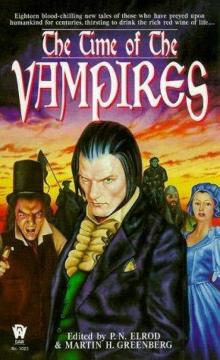 Faith Like Wine
Faith Like Wine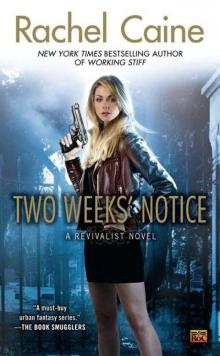 Two Weeks' Notice: A Revivalist Novel
Two Weeks' Notice: A Revivalist Novel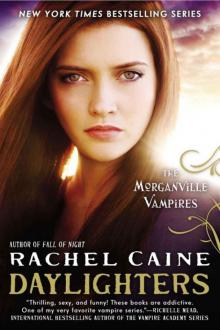 Daylighters tmv-15
Daylighters tmv-15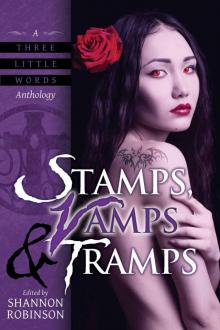 Stamps, Vamps & Tramps (A Three Little Words Anthology)
Stamps, Vamps & Tramps (A Three Little Words Anthology)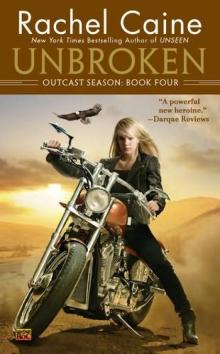 Unbroken os-4
Unbroken os-4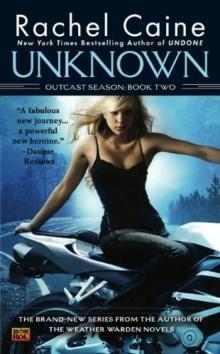 Unknown os-2
Unknown os-2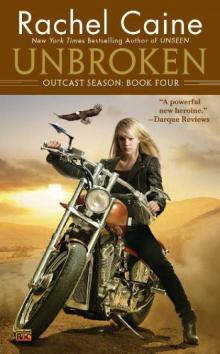 4 - Unbroken
4 - Unbroken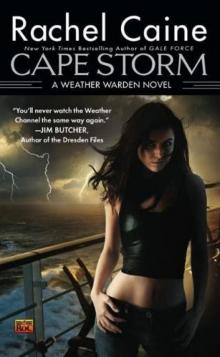 Cape Storm tww-8
Cape Storm tww-8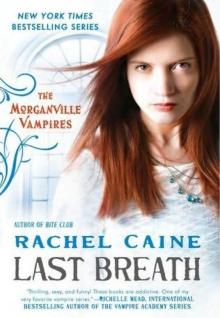 Last Breath tmv-11
Last Breath tmv-11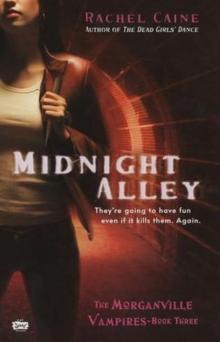 Midnight Alley tmv-3
Midnight Alley tmv-3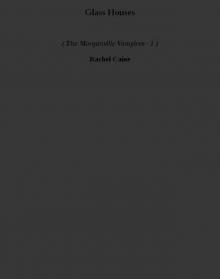 Glass Houses tmv-1
Glass Houses tmv-1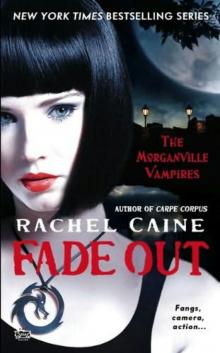 Fade Out tmv-7
Fade Out tmv-7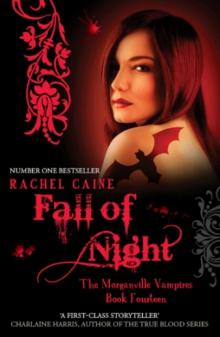 Fall of Night tmv-14
Fall of Night tmv-14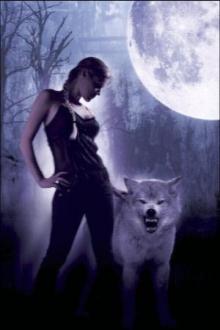 Godfellas
Godfellas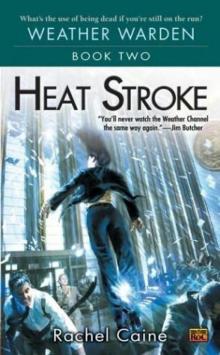 Heat Stroke ww-2
Heat Stroke ww-2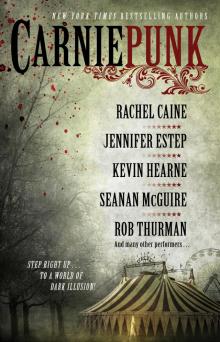 Carniepunk
Carniepunk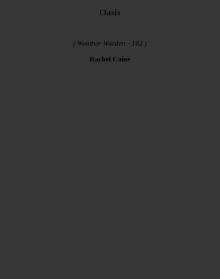 Oasis ww-102
Oasis ww-102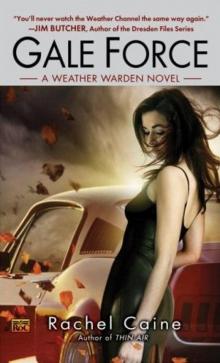 Gale Force tww-7
Gale Force tww-7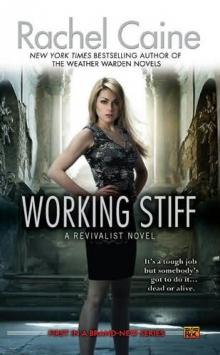 Working Stiff tr-1
Working Stiff tr-1